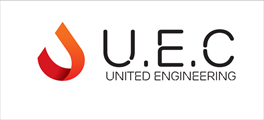
Steps to write a successful CV
Writing a successful resume can be one of the most difficult challenges while searching for a job, most employers spend only a few seconds to go through the resume before giving a decision of either “yes” or “no”, it may seem a bit harsh, but this is the reality in place Therefore, it is necessary to deal with this given cleverly, because the CV is the first means of communication that combines the employer and the applicant for the job, and his image that must be presented well in order to tell about him and represent him in the best way. Here are the most important steps to help you write a successful CV:
1- Curriculum vitae in a simple and detailed manner
Simple and fluid CV writing is highly recommended The contents of a CV are often brief and short, without excessive verbiage or excessive lengthening. It should contain only the necessary information to prove your eligibility for the job you are applying for. Be careful not to exceed the CV pages more than it should, do not forget that the employer spends no more than 8 seconds in browsing the CV, so it is recommended to avoid the side details and leave them for the direct meeting, and focus on the main points of interest to the employer.
2- Do not adopt the same CV for every job you apply for
One of the common habits that the majority unconsciously do is wrong; Distributing the same CV to many job offers, some may see it as saving time, but in fact it is one of the reasons for not being accepted. For every job offer or company that you apply to, they are looking for criteria, and this matter must be taken into account and used to determine the skills that you should refer to in the resume.
3- Talk about yourself
Don't assume that the employer will only focus on the importance of your experience with their work, but it is also important to use a short personal statement about why you are the best fit for the job.
4- Don't leave gaps
When writing a CV, you should avoid leaving gaps that would generate suspicion and suspicion in your file. For example, mentioning the fact that you left a previous job may be a source of concern to the employer, but just explaining more that it was with the intention of doing a course or volunteer work or Developing skills such as; communication, teamwork or project management, will turn it in your favor and double your approval rate.
5- Tell the truth
Most people lie on resumes, right? If the answer is yes, we advise you to stop doing that now, because it will later create great troubles and embarrassment for you, especially when employers check the background and references. Of course, the last thing you want is to start working with a false truth that you will not be long in and lose because of your lying, and do not forget that half of the work is on the resume and the other half in the interview, which because of your lying will turn into endless moments of embarrassment, so avoid this given
6- Write down your hobbies and interests
At the end of the CV, write two lines to write down your hobbies and interests or any volunteer or community work. If you are the president of a golf club, or the president of an association for photography enthusiasts, or head an association and events, be sure that this information will work for you, not only as an opportunity to link communication with the Lord, It is also a reflection of your ability to lead and manage a group outside of a business context. Resume sections vary depending on the type of job, or the purpose of sending the resume, but in general, these are some of the common sections on resumes:
- Personal Information
- Academic qualifications
- Job Experience
- Courses and Activities
- Skill
- Hobbies
- Recommendations
Resume writing tips
Here are some recommendations that can help you write a professional CV:
- The information in the CV should be correct, not exaggerated nor falsified.
- To be brief and brief, and not to dwell on details
- Accurate personal information, such as name, address, and contact information.
- Language integrity, avoiding grammatical and spelling errors.
- Don't mention the salary you want unless explicitly asked to do so.
- Organizing and arranging ideas.
- Clearness. Don't assume the reader knows things that you take for granted.
- It should be a br عنوان address








